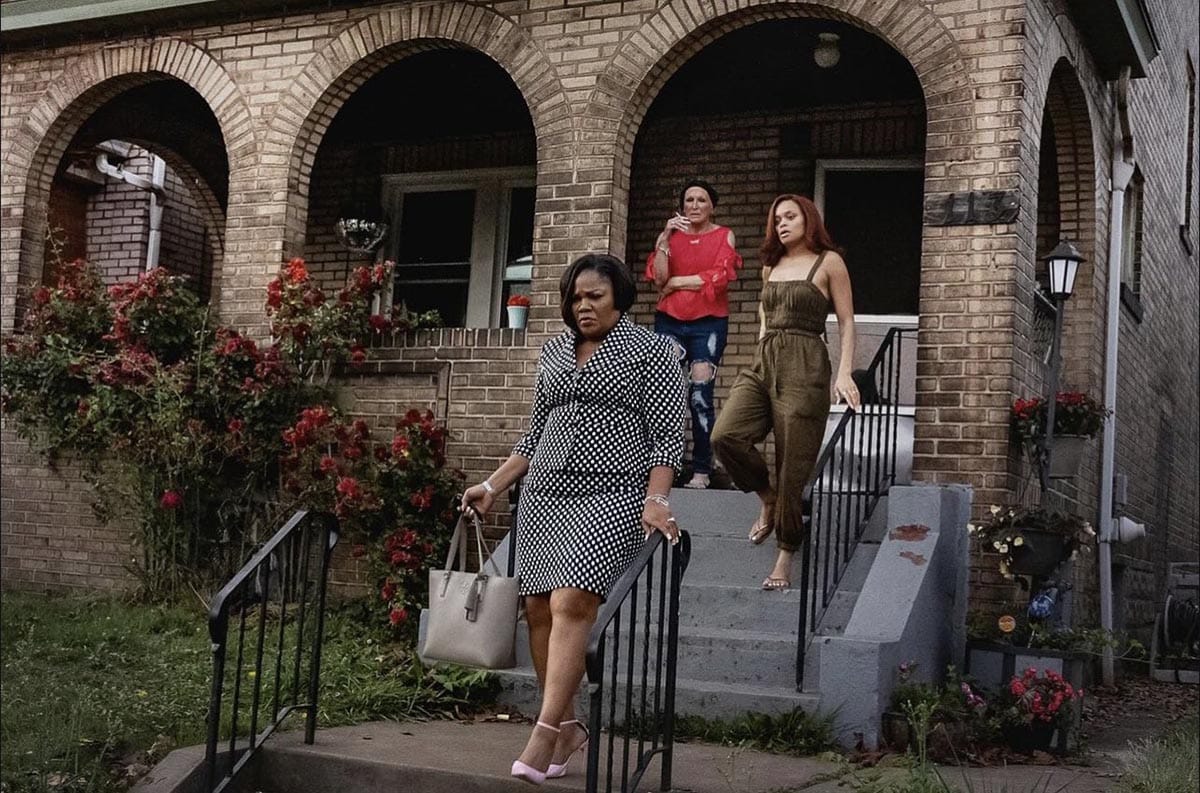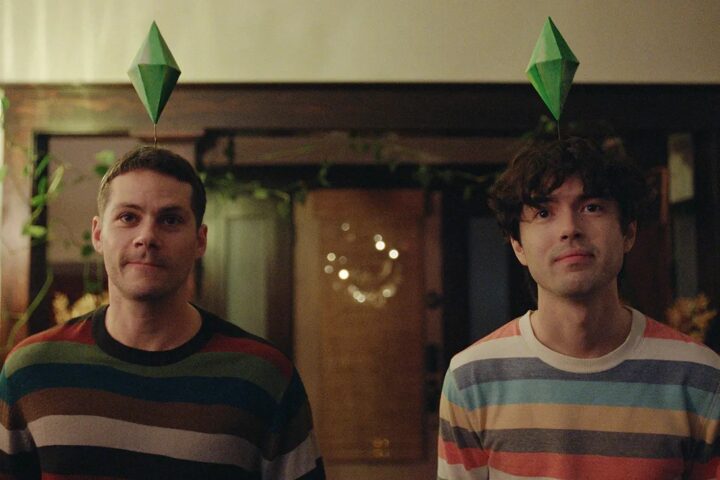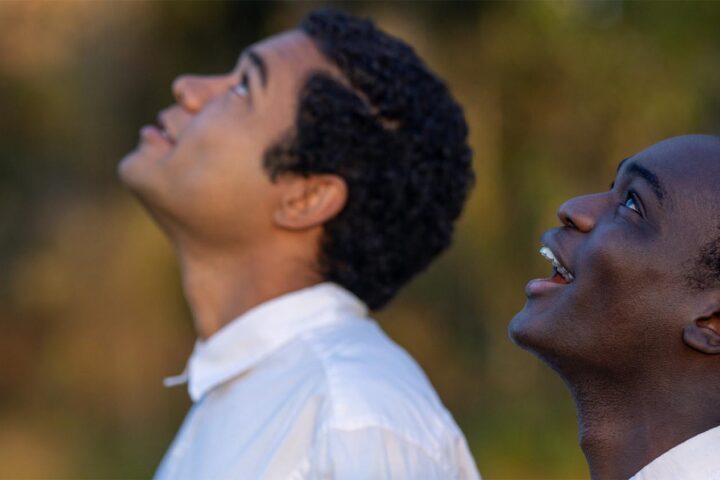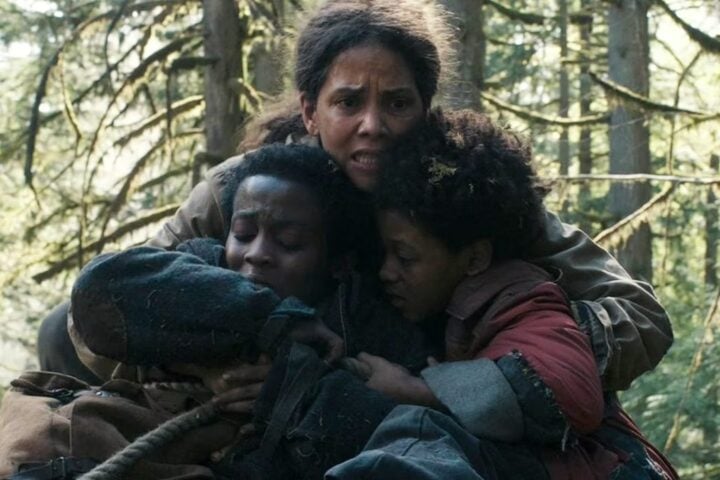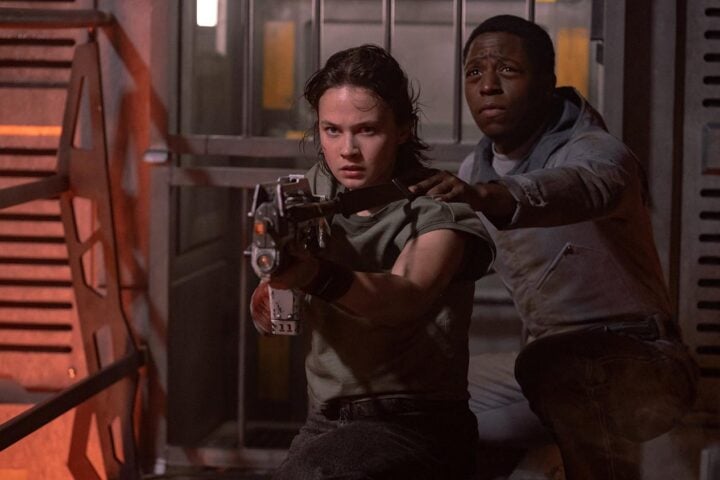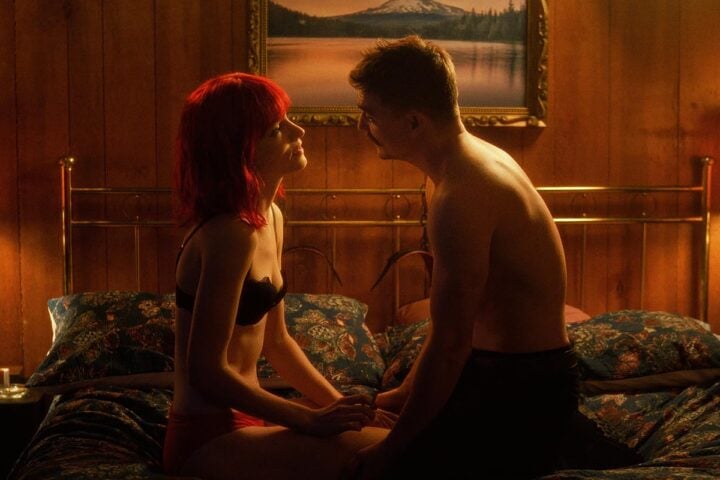Inspired by the alleged 2011 haunting of a rental home in Gary, Indiana, occupied by Latoya Ammons and her three children, Lee Daniels’s The Deliverance generally abides by the tried-and-true Amityville Horror playbook when it comes to its scare tactics. But Daniels isn’t one to turn in an anonymous genre effort, so his stab at a haunted house story leaves plenty of room to explore the toxic cycles of abuse endured by the family at its center, freely indulging his penchant for robust miserabilist melodrama and showy performances.
Ebony (Andra Day) is a single mother from Pittsburgh, Pennsylvania, who’s struggling to provide for her three children, the teenaged Nate (Caleb McLaughlin) and Shante (Demi Singleton) and younger Dre (Anthony B. Jenkins), on a low-wage salary while their estranged father is away on indefinite duty in Iraq. Ebony has also taken in her patronizing mother, Alberta (Glenn Close), while the older woman undergoes cancer treatments. With bills eternally piling up, Ebony doesn’t know how to hold it all together while also ineffectively managing her substance abuse, which only makes the family unit more fractious than it already is.
Then things start going bump in the night, and Ebony’s children begin to show not-so-subtle signs of being possessed. But even as the supernatural begins to rear its ugly head throughout the first half of The Deliverance, Daniels steadfastly maintains his attention on the physical world and in developing strong and complex characterizations with the help of his excellent cast.
As evinced by an early scene where Ebony confronts a local bully for antagonizing Nate, Day ferociously stakes her claim as the kind of take-no-shit heroine that seems so rare in this day and age of trauma horror. Yet Ebony is also deeply flawed, frequently lapsing into drunkenness and angrily raging against her own children, something that she desperately tries to hide from the dogged child services agent (Mo’Nique, expertly alternating between expressing ire and reluctant sympathy for Ebony’s situation) assigned to check up on them.
By contrast, Close puts on a master class in camp, at times recalling Nicole Kidman’s Alabamian vamp from Daniels’s bonkers The Paperboy. Strutting through the film in an array of revealing outfits and fabulous wigs, Close makes a meal out of every diva-ready moment as the newly devout and happily promiscuous Alberta, whether she’s shamelessly attempting to seduce the hunky nurse, Melvin (Omar Epps), at the chemo clinic or making snide comments to her grandchildren at the dinner table about Ebony’s parenting skills. Yet when Alberta periodically reflects on her own failures as a mother, Close’s talent for quietly evoking raw and unpleasant emotional states ensures that the character isn’t just a one-note caricature.
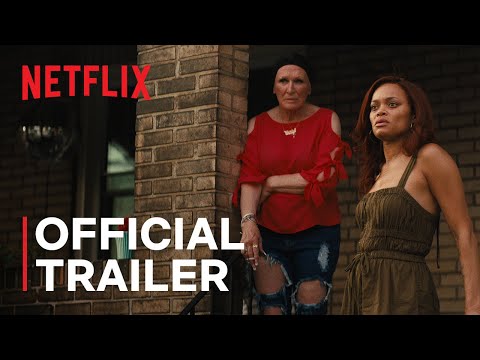
The volatile mother-daughter dynamic between Ebony and Alberta ultimately forms the backbone of the film, revealing a dark history of abuse that’s trickled down through the generations and seemingly provided a fertile breeding ground for diabolical spirits. The filmmakers shrewdly parse through the tensions inherent in being the product of an interracial couple and simultaneously interrogate the “angry black woman” label that’s unconsciously foisted on Ebony by both the white authorities she goes to for help and her own mother.
But while the two women are at each other’s throats through much of The Deliverance, the tension reaching a peak during a house party for Shante’s birthday in which Ebony spirals spectacularly out of control, we also get moments of tenderness between the two. The love that the characters obviously harbor for one another is especially keenly felt in a scene where where Alberta, Ebony, and Shante quote along to a viewing of Mark Robson’s Valley of the Dolls while braiding each other’s hair, while Dre and Nate look on in bemused silence.
Daniels does such a good job investing us in the human drama of The Deliverance that it almost feels unnecessary when the supernatural elements inevitably take over in the final act. As the kids start speaking in tongues and climbing up the walls, Ebony eventually manages to bring in a reverend (Aunjanue Ellis-Taylor) to perform the requisite exorcism, but any experienced horror fan would be hard-pressed to find any of this legitimately scary.
Rather than bring the gleeful luridness of his prior work to this climactic stretch, Daniels opts to let it play out in the lukewarm fashion of a Conjuring Universe entry. Meanwhile, the human element largely gets sidelined, with the greatest casualty being the lack of a satisfying conclusion for Ebony and Alberta’s entwined narrative trajectory. These two women bring The Deliverance to life in a way that the literal ghosts of this tale desperately wish they could.
Since 2001, we've brought you uncompromising, candid takes on the world of film, music, television, video games, theater, and more. Independently owned and operated publications like Slant have been hit hard in recent years, but we’re committed to keeping our content free and accessible—meaning no paywalls or fees.
If you like what we do, please consider subscribing to our Patreon or making a donation.

